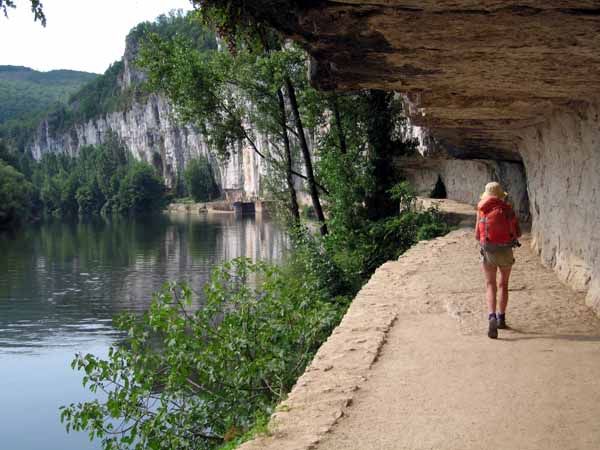
Walking offers the chance to get right away from modern transport, using a much older network.
The physical act of walking is the most natural thing in the world and brings its own sense of well-being, assuming you do not have a heavy load or blisters.
Why walk when you can drive, or go by train? If you really have to ask yourself this, you are probably in the wrong website, but we will try to convey what the attraction is.
There is something romantic about following ancient ways on foot, reliving the experience of previous generations.
At the same time, it is good to know that there will be modern comforts at the end of the day – hot showers and a well-cooked meal.
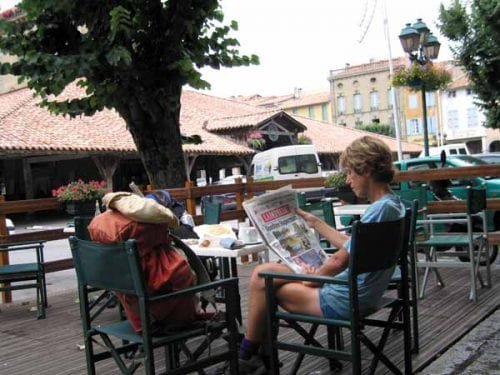
It is a sort of play-acting really. You walk like a medieval pilgrim, but drop out of the role at every village to take in a coffee and a pastry, read the paper or send an email.
There are chance encounters with markets and fetes, and with local people, who always stop for a chat. This is delightful in itself and also good language practice.
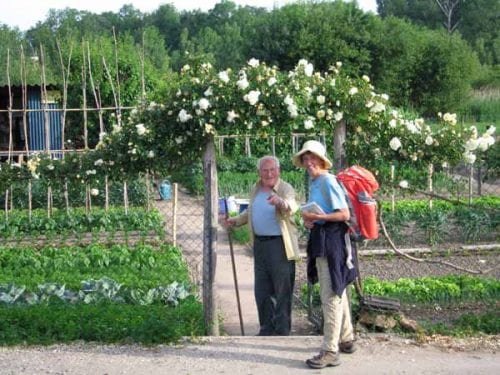
There are simple pleasures that can only be fully appreciated after a day’s walking – a drink of cold water, unimaginably delicious at the end of a long walk, a nap under a tree in the afternoon, a basket of fresh bread at the dinner table (demolished even before your order is taken), and the blissful tiredness in your muscles as you drift off to sleep.
Walking tracks can take you to places out of the public view, such as behind people’s back gardens, which are always of interest to the nosy passer-by, especially the lovingly tended vegetable plots.
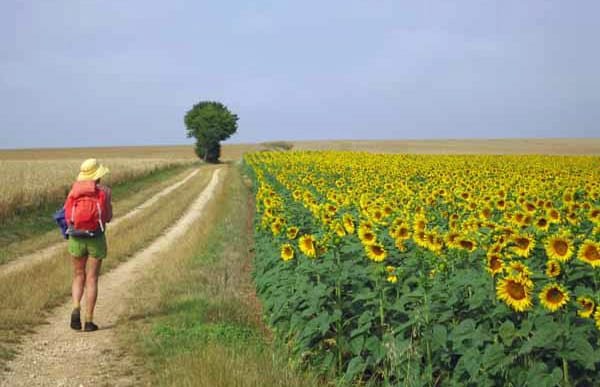
Walking allows you to stop whenever and wherever you like, and get a good look at what is around you, the far and the near. Photography is well suited to walking for this reason.
Yet there is something else, much harder to describe, and for many, harder to understand. It is the mental state you get into after days and days of continuous walking.
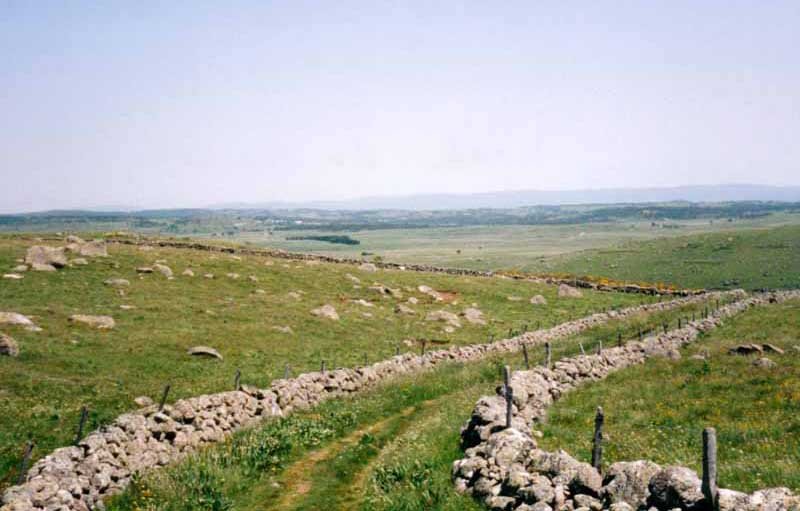
For one thing, distances change. We are often astonished to hear car-driving friends say that they have been on an afternoon jaunt to somewhere that we think of as being four days away.
For another thing, life becomes very simple. Each day is part of a steady progression lasting weeks. There are no timetables to stick to, no problems with parking, no need to book ahead and no machinery to go wrong except your own body (fallible but self-repairing).
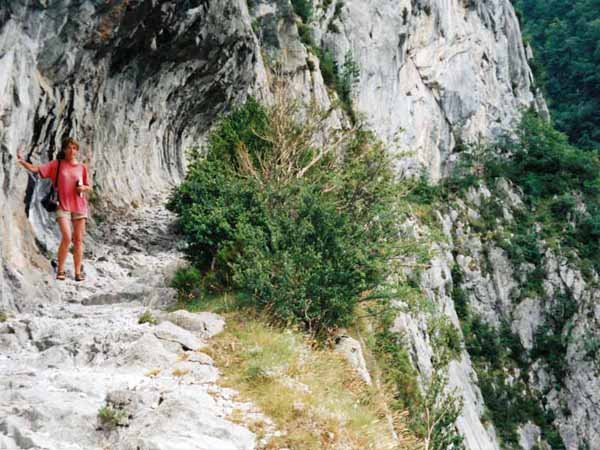
The nearest thing to a worry that we have is anticipating the next coffee or meal.
Cycling has something in common with walking and we have a fellow feeling for cyclists that we meet, but we think it an inferior way to see the country, although our cycling friends will hate us for saying so.
It is true that there are some dedicated bike paths in France, but on the whole cyclists are restricted to the road, which can be unpleasant and downright dangerous. We will not even go into the matter of punctures, loose chains, faulty brakes and so on.